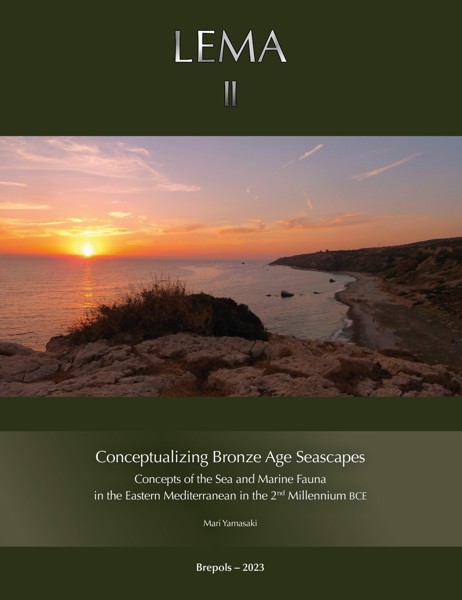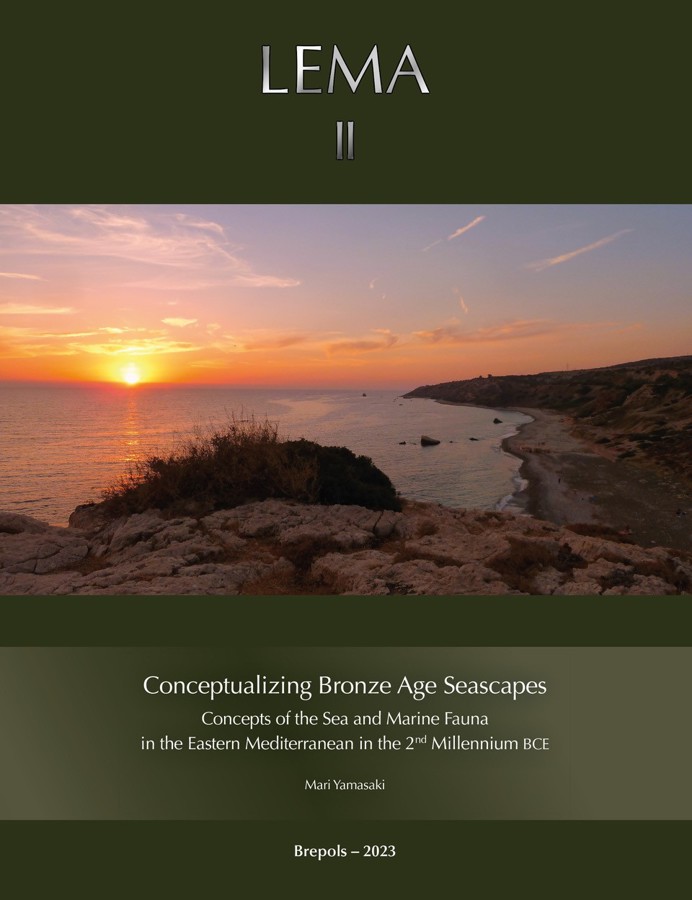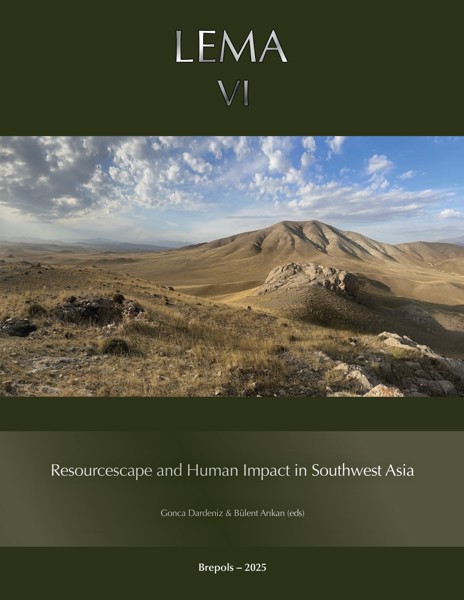
Conceptualizing Bronze Age Seascapes
Concepts of the Sea and Marine Fauna in the Eastern Mediterranean in the Second Millennium BCE
Mari Yamasaki
- Pages: x + 218 p.
- Size:216 x 280 mm
- Illustrations:20 b/w, 7 col., 13 tables b/w., 3 maps b/w
- Language(s):English
- Publication Year:2023
- € 85,00 EXCL. VAT RETAIL PRICE
- ISBN: 978-2-503-60647-7
- Paperback
- Available
- € 85,00 EXCL. VAT RETAIL PRICE
- ISBN: 978-2-503-60648-4
- E-book
- Available
Mari Yamasaki is an Ancient Near Eastern archaeologist who specializes in the Eastern Mediterranean. Her research focuses on concepts of maritimity and ancient perception of underwater spaces. She completed her PhD on the conceptualisation of the sea in the Eastern Mediterranean Bronze Age at Johannes Gutenberg University, Mainz. Since 2023 she is a postdoctoral researcher at the Polish Centre for Mediterranean Archaeology at the University of Warsaw. Her fieldwork includes excavations and surveys in Italy and Cyprus, both on land and underwater.
The Mediterranean has, for millennia, formed the heart of an intensive trading network of ideas, goods, and people. For the ancient populations of the Levant, Cyprus, and Southern Anatolia, interactions with the sea — from fishing to seafaring, and from trade to dye production — were a constant presence in their life. But how did the coastal peoples of the Bronze Age understand the sea? How did living on the shore influence their lives, from daily practices to mythological beliefs? And what was the impact on their conceptual world? This volume seeks to engage with these questions by addressing the relationship between environment, diet, material production, perception, and thought formation through a combination of archaeological analysis and engagement with primary sources, and in doing so, it offers unique insights into the conceptual world of the ancient Mediterranean maritime cultures of the 2nd millennium BCE.
Acknowledgements
List of Abbreviations
List of Common and Scientific Names of Fish and Molluscs Mentioned in the Text
Part I: Framework
Chapter 1. Introduction
Objectives
Organization of the Book
Chapter 2. History, Theory, and Methods
State of the Art
Theoretical Framework
Chronological Framework
The Evidence
Part II: Regional Chapters
Chapter 3. Levant
Faunal and Material Cultural Evidence
Textual Evidence
Discussion
Chapter 4. Cyprus
Faunal and Material Cultural Evidence
Textual Evidence
Discussion
Chapter 5. Southern Anatolian Coast
Faunal and Material Cultural Evidence
Textual Evidence
Discussion
Part III: Overarching Analysis
Chapter 6. Concepts of Marine Fauna
Marine Fauna as Food
Fish and Molluscs: Offerings and Purity
Marine Fauna as Status or Commodity
Visual Concepts of Marine Fauna
Chapter 7. Concepts of the Sea
The Sea as a Place
The Sea as a Supernatural Force
The Sea as a Divine Entity
Chapter 8. Conclusions: Concepts of Seascapes
Works Cited
Index




